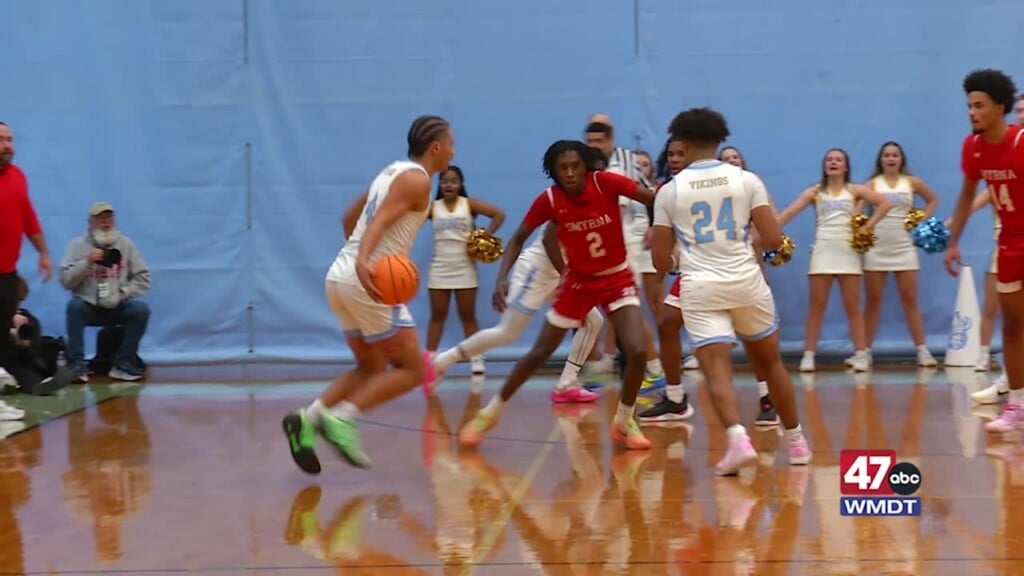“Breaking The Stigma” Part 2
For those suffering with mental illness treatment is necessary to regain control not just of their mental health, but more importantly their lives. But that process isn't always easy.
For 53-year-old Dave Ziehl, who came to Go-Getters after almost taking his own life the transition took awhile.
Ziehl had been recently diagnosed as bipolar, suffering from major depression and a post-traumatic stress disorder, all compounded by alcoholism
"It's not an overnight thing. It just didn't.. Oh I take medication now this is going to work," Ziehl said. "It took a few weeks to get into the program and figure out this is different, this is going to change my life, they're gunna… they're gunna teach…part of the things they teach you life skills, how to live again."
Dimitri Cavathas, CEO of Go-Getters and Lower Shore Clinic explains part of that new way of life begins with a secure home.
"We have housing for people with disabilities including supervised housing and supportive housing which basically means we have housing that's affordable for people that are on disability," Cavathas said.
"Having your own place is just a huge boost in their own journey of recovery. I mean to feel like you have your own place to do things and feel like you're part of the community," Cavathas said. "I mean if you're in the community having a place to live and having a job are the two things that everyone in the community really has or expects to have."
For 27-year-old Brittany Starns dealing with schizophrenia, being bipolar and major depression she says the Go-Getters housing helps her be a better person.
"I mean they made sure I had three meals a day, they took me personal shopping every Saturday. They taught me coping skills, they gave me an opportunity to make a lot more friends, they took me to NA and AA programs. They just helped me re-enter to the place I am now to have a job and I live with a great person now at my house," Starn said.
Friends are a key part of the treatment structure.
Kathy Blackburn is a team leader for Wulff Pack, a division that works with younger members. She explains that they promote a positive based peer culture.
"They buy in from their peers. Positive peer pressure is as powerful as negative peer pressure," Blackburn said.
"It was like he helps you, you help him and if you got something to say you say it as a group about it, if you're feeling depressed or something you have a group and then you just work through it," Ziehl said.
Blackburn explainsanother key part of the treatment process is teaching people what they're dealing with.
"We do a lot of educating about their mental illness which have them actually do a black book," Blackburn said.
"It has different things in it like life skills and how to deal with situations you have like somebody comes up and bullies you, what do you do," Ziehl said.
And through this treatment, they work to build self-confidence.
"People here at Go-Getters showed me a better way of life and showed me that I had potential, that I can be something better than what people are just telling me, telling me that I was stupid and that I was crazy they showed me that I'm more than that so it made me want to do better," said 27-year-old Brittany Starns, who lives with being bipolar and schizophrenic.
"Like someone with uh, like I told you yesterday you know a diabetic your pancreas doesn't work so you have to take medicine for it to function, well it's the same way with your brain, it doesn't produce the chemical or something so you have to take medication to help it so .. and they teach you're normal not to feel any different," said 57-year-old Vivian Miller, who lives with a severe anxiety disorder, among other illnesses.
That analogy for medicine is used often at Go-Getters, that taking medication for mental illness is the same as taking medication for any other disease.
It's finding the right medication that is key.
"I can relate to that person that's drooling, that used to be me so I like to talk about it and let people know that there is hope, you know, just hang in there the doctors, give the doctors a chance to get it right you know, cause they will get it right," said 52-year-old Charles Green, who is bipolar-schizoeffective.
Health care professionals say right now finding the right medicine is sometimes and hit and miss system, but it's something they are working on.
Green said for those on the fence about getting treatment, he encourages them to take the step forward and do it.


